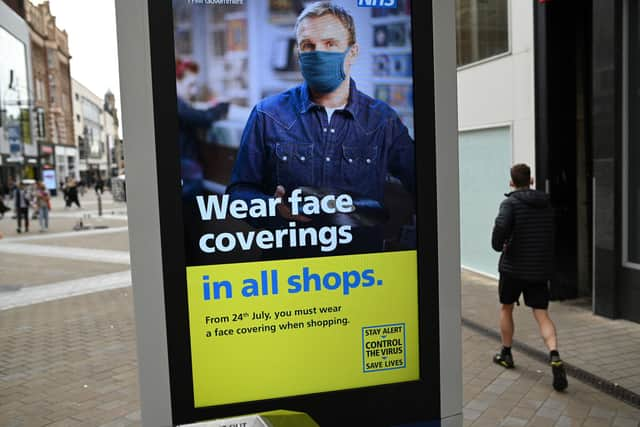3.4 million people in England infected with Covid-19, study suggests
and live on Freeview channel 276
The new figure, based on the world’s largest home testing programme to find coronavirus antibodies, involving more than 100,000 volunteers and carried out by Imperial College London, is much higher than both the official tally and previous estimates.
Conducted with the use of a simple finger-prick home test said to be easy and accurate enough for mass surveillance studies, the programme suggested six per cent of England’s population had already been infected with Covid-19 by July 13.


Advertisement
Hide AdAdvertisement
Hide AdThe 3.4 million people that represents is many times higher than the tally of known cases for the entire UK as posted by Johns Hopkins University in the US – whose aggregated numbers have become the main reference for monitoring the disease – and which listed the country’s case numbers at 315,546 as of Thursday morning.
The study tracked the spread of infection across England after the pandemic’s first peak, with volunteers testing themselves at home between June 20 and July 13.
People living in London were most likely to have been infected, along with those working in care homes and health care, people from black, Asian and other minority ethnic groups, and people living in larger households.
The programme suggested a total of 13 per cent of people living in London had Covid-19 antibodies, compared with less than three per cent in the south west of England.
Advertisement
Hide AdAdvertisement
Hide AdPeople working in care homes (16 per cent) and health care (12 per cent) returned far higher results than people who were not key workers, at five per cent.
The study found 17 per cent of black volunteers had antibodies, the categories of Asian and ‘other’ ethnic minorities had 12 per cent each, and the figure among white volunteers was only five per cent.
People aged 18-34 showed the highest incidence of antibodies, at eight per cent, while over-65s had the lowest rate, at just three per cent.
Health Minister Edward Argar said it was not yet known whether antibodies provide immunity to coronavirus but such studies were an important tool in helping to understand how the virus has spread.